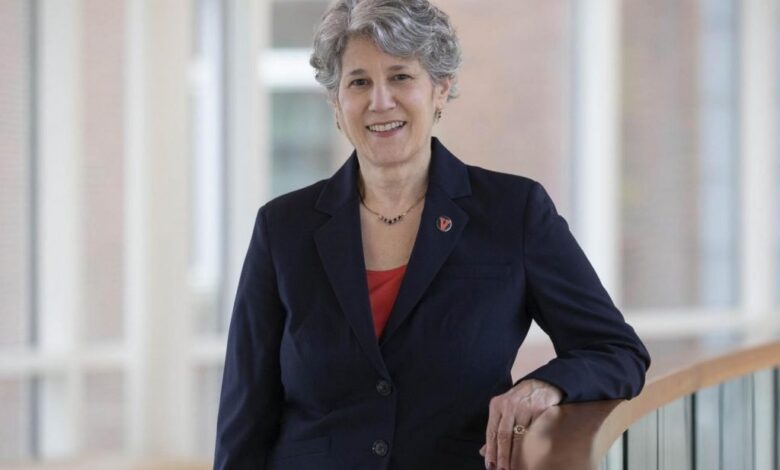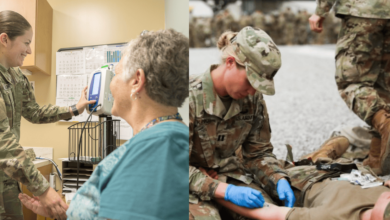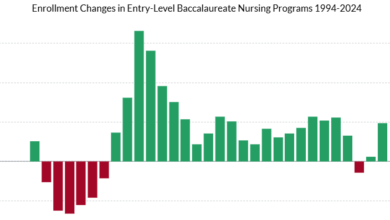Global nursing body calls for reckoning on gender equality

Governments, nursing associations and nurses themselves must all play a part in stamping out “increasing” gender inequity around the world, according to the International Council of Nurses (ICN).
In commemoration of the ICN’s 125th anniversary this year, president Dr Pamela Cipriano reaffirmed the organisation’s commitment to ending gender-based violence and discrimination at a time when, she said, things seem to be getting worse.
“There is still much to do to improve the position of women and girls around the world”
Pamela Cipriano
Dr Cipriano said there was “still much to do” to improve the position of women across the world, and that nursing has a role to play – and is also set to benefit – from this as a 90% female profession.
The ICN was founded in 1899 and is a federation of more than 130 national nurses associations representing the millions of nurses worldwide.
It has published two position statements, one for health and care more broadly and one specifically for nursing, recommending action on tackling gender inequity.
Dr Cipriano said the ICN anniversary reminded her of founder Ethel Gordon Fenwick’s desire that the body could help “elevate the position of women around the world”.
She said: “Although much has been achieved, and the position of women has much improved over the past 125 years, ICN continues to strive for those two objectives.
“But the truth is that inequality generally is increasing around the world in terms of health, economics, poverty and opportunities, and gender inequality is often at the heart of these growing inequities.
“There is still much to do to improve the position of women and girls around the world,” said the Dr Cipriano.
“Our new gender equity position statements highlight the important role of nurses in ensuring that health care is delivered equitably for men, women and gender diverse people.”
These position statements, Dr Cipriano said, were published because it was “clear” that the world needed a “further push” to achieve equality for women.
The statement on gender equity in the nursing and health workforce reiterated the key issues intersecting gender and nursing.
For example, that 90% of the workforce is female and, as a result, the profession is sometimes perceived – as with other “feminine” ones – to be of lower status.
It also highlights the lower pay women in healthcare receive, the additional strain they faced during the Covid-19 pandemic, with higher rates of morbidity in some countries, and the “unfair remuneration and persistent undervaluing” of women, who are at higher risk of workplace violence compared to male colleagues.
In addition, it said that “harmful gender norms, roles and relations” were the responsibility of everyone, and it advocated for nursing to be perceived as a highly-skilled and scientific profession.
Dr Cipriano said nurses themselves should be “in the vanguard” of the efforts to improve gender equity.
The statement reflected this, advocating for nurses in their roles as clinicians, educators, managers, researchers or policy influences to play their part.
Specifically, it asked nurses to help promote the importance of the issue and the important contributions of women and gender-diverse persons (transgender, non-binary and other people not in the male-female gender binary) in healthcare, and play their part in making nursing more diverse and representative.
Nurses were also asked to help challenge gender bias and norms in the workplace, promote policies that protect people from gender-based violence, uplift and celebrate women and gender-diverse persons, and help close the gender digital divide.
Further more, the position statement asked nurses to help research gender gaps, such as pay, and occupational segregation.
Governments and nursing associations, meanwhile, were asked to push for better pay for women in health systems, an end to gender-based violence in the workplace and to “urgently” address health and wellbeing support for female and gender-diverse nurses.
The other position statement, focused on gender equity in health and healthcare, highlighted many of the same issues regarding gender inequity.
The statement “deplored” the sexual exploitation of women and girls, and all forms of violence towards women including female genital mutilation (FGM).
It recommended action from governments and nursing associations to help fix these issues, and for them to consider the discrimination of gender-diverse persons in their policies.
As well as this, the ICN called on governments, policymakers, and nurses to help end stigmas and discrimination based on gender more broadly, to seek out stereotyping and bias training, help recruit gender-diverse people into nursing, and help improve data gathering to monitor the gender mix of leadership.
Related articles on Ethel Gordon Fenwick
More on global nursing






